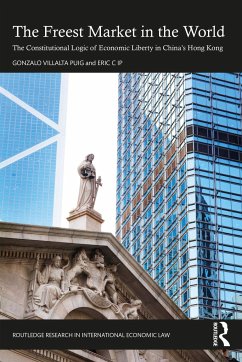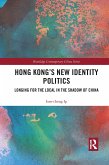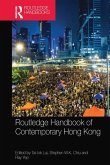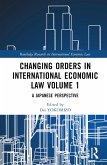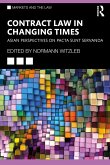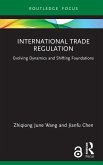On the 25th anniversary of the establishment of the Hong Kong Special Administrative Region of the People's Republic of China, this book presents the first monographic study of the Hong Kong Basic Law as an economic document. The Basic Law codifies what Gonzalo Villalta Puig and Eric C Ip call free market constitutionalism, the logic of Hong Kong's economic liberty as the freest market economy in the world.
This book, which is the outcome of several years of study with the financial support of the General Research Fund of Hong Kong's Research Grants Council, evaluates the public choice rationale of the Basic Law and its projection on the Hong Kong economy, with a focus on the policy development of economic liberty both internally and externally. In the academic tradition of James M Buchanan's constitutional political economy, the book opens with a conceptualisation of free market constitutionalism in Hong Kong. It studies the origins of this concept in the 19th-century classically liberal common law and how it developed into a Hayekian laissez-faire convention under British colonial rule, was codified into the Basic Law and is interpreted and applied by the branches of the Government of the Region. The book closes with remarks on the future of Hong Kong's free market constitutionalism in face of recent challenges as the year 2047 approaches and the 50 years of 'unchanged' capitalist system under the Basic Law pass.
This book will appeal to students, scholars and practitioners of law, economics, political science and public administration. It will especially appeal to those with an interest in Hong Kong law, international economic law or comparative constitutional law.
This book, which is the outcome of several years of study with the financial support of the General Research Fund of Hong Kong's Research Grants Council, evaluates the public choice rationale of the Basic Law and its projection on the Hong Kong economy, with a focus on the policy development of economic liberty both internally and externally. In the academic tradition of James M Buchanan's constitutional political economy, the book opens with a conceptualisation of free market constitutionalism in Hong Kong. It studies the origins of this concept in the 19th-century classically liberal common law and how it developed into a Hayekian laissez-faire convention under British colonial rule, was codified into the Basic Law and is interpreted and applied by the branches of the Government of the Region. The book closes with remarks on the future of Hong Kong's free market constitutionalism in face of recent challenges as the year 2047 approaches and the 50 years of 'unchanged' capitalist system under the Basic Law pass.
This book will appeal to students, scholars and practitioners of law, economics, political science and public administration. It will especially appeal to those with an interest in Hong Kong law, international economic law or comparative constitutional law.
'[G]overnments and regulators often appear to me to forget that the volume and complexity of laws and regulations, or the level of tax, should not be such as to deter commercial activity and stifle entrepreneurism. ... As the authors of this book show, Hong Kong is not in danger of falling into this particular trap: the Region is unusual in the extent to which it leaves people in the financial and commercial worlds free to carry on their businesses as they see fit without extensive legislative or regulatory interference or excessive taxation.'
The Right Honourable the Lord Neuberger of Abbotsbury, Non-Permanent Judge of the Hong Kong Court of Final Appeal; former President of The Supreme Court of the United Kingdom.
'[T]he present volume makes an original and unique contribution to both the international and domestic understanding of the essence of the "Hong Kong system" that constitutes one of the "Two Systems" under "One Country, Two Systems". The authors point out that from the legal and constitutional point of view, the Hong Kong system is one of "free market constitutionalism".'
Professor Albert HY Chen, Cheng Chan Lan Yue Professor of Constitutional Law at The University of Hong Kong; Member of the Committee for the Basic Law of the Hong Kong Special Administrative Region under the Standing Committee of the National People's Congress of the People's Republic of China.
The Right Honourable the Lord Neuberger of Abbotsbury, Non-Permanent Judge of the Hong Kong Court of Final Appeal; former President of The Supreme Court of the United Kingdom.
'[T]he present volume makes an original and unique contribution to both the international and domestic understanding of the essence of the "Hong Kong system" that constitutes one of the "Two Systems" under "One Country, Two Systems". The authors point out that from the legal and constitutional point of view, the Hong Kong system is one of "free market constitutionalism".'
Professor Albert HY Chen, Cheng Chan Lan Yue Professor of Constitutional Law at The University of Hong Kong; Member of the Committee for the Basic Law of the Hong Kong Special Administrative Region under the Standing Committee of the National People's Congress of the People's Republic of China.

